BRUSSELS, Belgium - The U.S. Department of Justice reported that in 2008 there were an estimated 182,000 cases of sexual assault or rape of females age 12 or older in America.
The DOJ reported that in 2007 nearly 40 percent of the women who took self-protective measures when being assaulted avoided further harm and scared away the offender. They avoided becoming victims because they fought back.
Learning how to fight back and protect yourself and gain confidence were the goals of the Women's Self Defense class at U.S. Army Garrison Brussels April 17, according to lead instructor Yvette Castro.
Castro, the Victim Advocacy Coordinator for USAG Benelux and USAG Brussels, taught the course with Military Police Sgt. Jonathan Verdugo.
The class taught the four students who attended effective self-defense techniques to use if attacked and familiarized them with the basics of Belgian law regarding assaults.
Castro emphasized that if assaulted women should be aggressive and use whatever they can to protect and free themselves.
Use handles, things you can grab like arms, ears, clothes, she said. Use what you have at hand and attack with kidney strikes, hit the bladder, they eyes, the nose.
Castro taught the students methods to free themselves from an attacker who grabbed them from behind, eye gouges, kicks, punches and chops to vulnerable parts of the body-the arch of the foot, the side of the knee, the groin, the eyes, the throat.
Castro also provided common sense tips should they be the victim of a purse snatcher.
"If someone grabs my purse, do I say 'Get off my purse, back off!'' No, I just say 'Take it!' and run away," she said.
The point is to protect yourself even if it means losing whatever is in your purse.
"Do not tussle and be a hero, give it up. Just throw it the opposite way," Castro said. "He doesn't want me he wants what's in my purse. He'll run that way and I'll run to safety."
Verdugo said that under Belgian law civilians cannot carry guns or knives and are not allowed to have or use pepper spray.
You have to use a weapon of opportunity, pencils, car keys...some women use chopsticks in their hair, use them, Verdugo said. You can fight back but when they stop, you have to.
Castro said that even though pepper spray is illegal in Belgium, an effective alternative is hair spray.
"No pepper spray' Mini-hairspray. Spray it in his eyes and it will hurt," she said.
Castro also offered the students an unconventional weapon for self-defense if they're attacked in the home-Saran Wrap.
"The most common place to be sexually assaulted is in your residence or someone else's," she said. "That's a horrible fact but it's true."
Castro said that a roll of tightly-wound Saran Wrap will break an arm.
While there are many effective methods of self-defense, Castro cautioned the class to be careful about the level of violence they use to combat an attacker.
"Be very careful with self-defense, use force proportionate to the threat or you could be the one prosecuted," Castro stressed.
One of the students who participated in the class, Libby Heffern, said she found it effective and relevant.
"I have four daughters and one son and they need to do this," for awareness. It gives you confidence" Heffern said.
Verdugo said the class makes people aware of their options.
"They can fight back, it gives them a confidence boost," he said. "People don't know what they can do till they try."
Castro has been teaching the class for about three years and believes it gives those who attend skills they need.
Some classes give too much, she said. This is a basic version; people find it easier than they thought it would be.
And, it also drives home an important point, Castro said.
"Adults need to be reminded that we can be victims too."
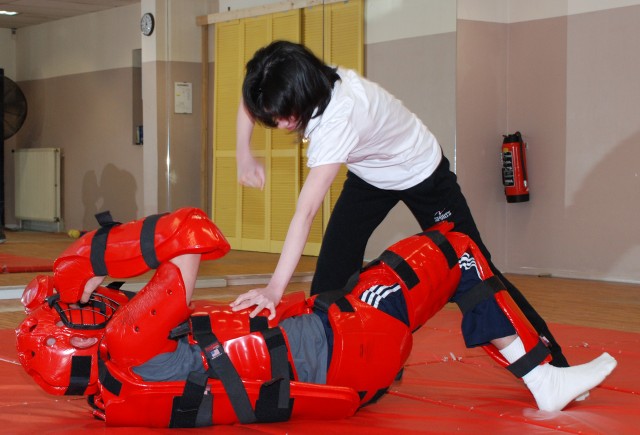
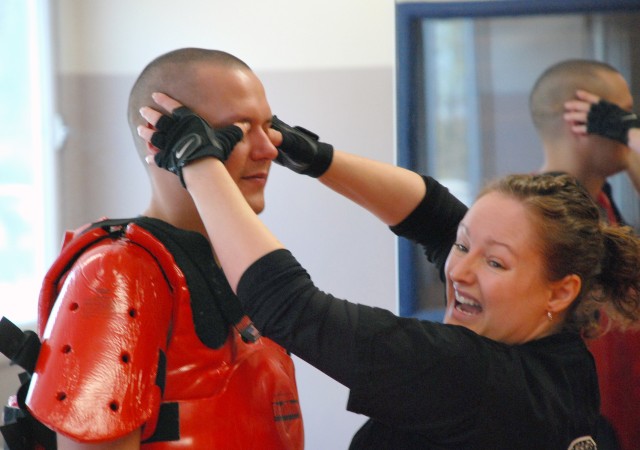
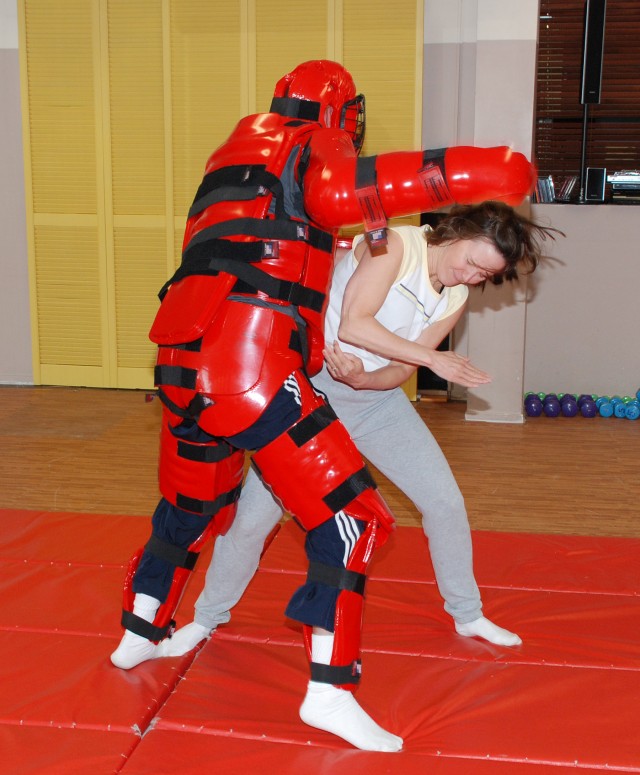
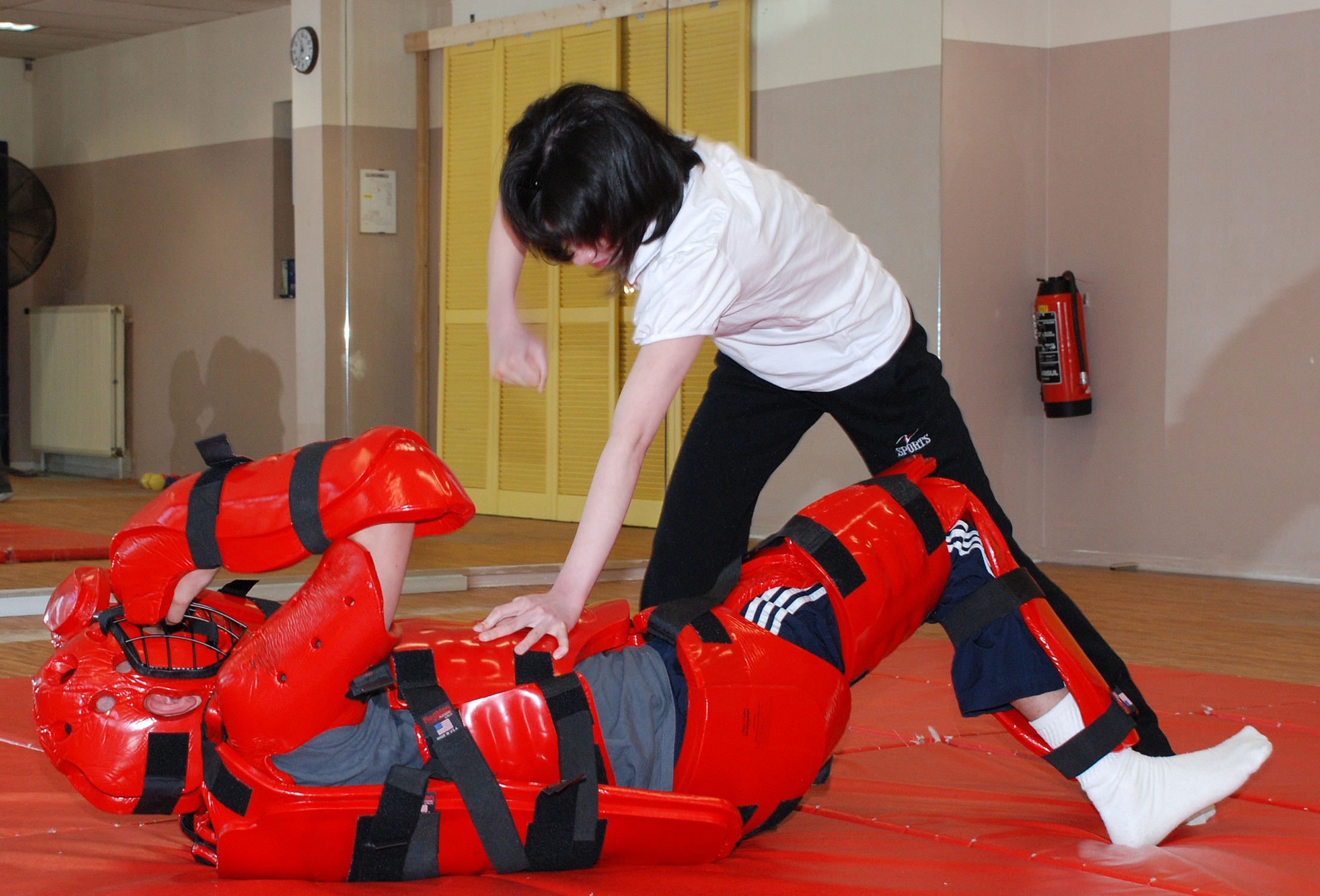

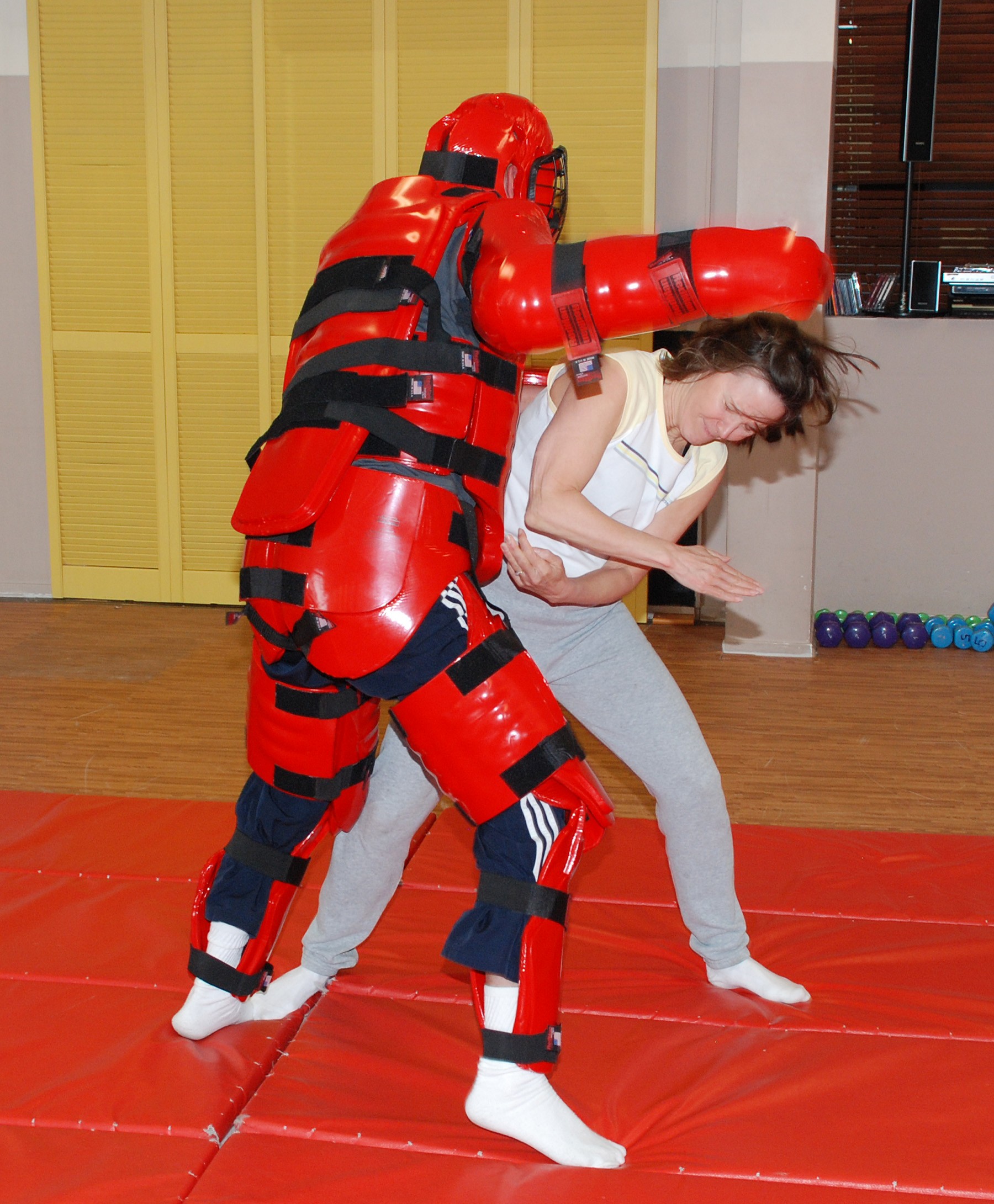
Social Sharing